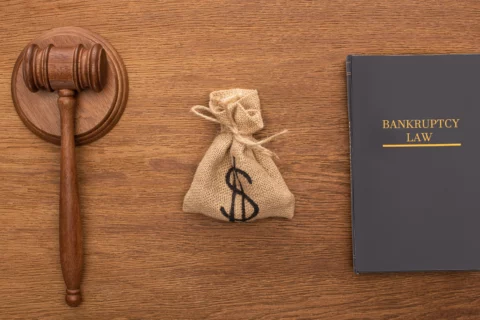Choosing Priority Debts in Bankruptcy

Not all debts are created equal. That’s why, when you file for bankruptcy, some debts are discharged (forgiven) while others are not. The types of debt that the law recognizes as most important are called priority debts. In most cases, these debts must be paid back, even in bankruptcy.
Types of Debts
There are three primary types of debts you’ll hear about when filing for bankruptcy:
- General unsecured debt isn’t backed by collateral. Medical bills and credit card bills are examples of this.
- Secured debt is attached to an asset. Auto loans with cars as collateral or mortgages with homes as collateral are examples of this.
- Priority debt is considered more important than these other types of debt. It may be either unsecured or secured, depending on the circumstances.
Types of Priority Debt
Examples of priority debt that can’t be wiped out in bankruptcy include:
- Child and spousal support: Bankruptcy law places a high value on support payments for children and ex-spouses. Therefore, this has the highest priority of all priority debts.
- Most income taxes, payroll taxes, sales taxes, and other debts to the government: Taxes are a liability to the public at large rather than an obligation to an individual. This is why they are considered more important than regular private debt. Be aware that some income taxes may not meet the required legal conditions to be considered priority debt, in which case they are lumped under general unsecured debt.
- Criminal fines, restitution, and personal injury or death awards due to drug or alcohol intoxication: Court-ordered penalties for committing a crime or harming another person can’t be wiped away in bankruptcy.
Dealing with Priority Debts During Bankruptcy
While you may not be forgiven for your priority debts in bankruptcy, you do benefit from an automatic stay. This prevents your creditors from contacting you, pursuing a civil lawsuit, or taking other actions to collect the debt.
The automatic stay period usually lasts for four months, giving you time to make arrangements to pay off debts that won’t get discharged—including priority debts. The hope is that, by removing most or all of your other debts, you can now afford to pay the non-discharged ones. Be aware that the automatic stay doesn’t apply to some obligations, most notably child and spousal support.
During bankruptcy, you work with a trustee to liquidate your assets, if applicable and put the proceeds of each sale toward paying off your priority debts. This, coupled with the forgiveness of your general unsecured and secured debts, drastically reduces what you must repay before the slate is wiped clean.
To find out which of your debts can and can’t be discharged in bankruptcy, speak with the bankruptcy lawyers of Cutler & Associates. We can help you choose the best course of action based on your unique financial situation. Call (773) 360-5802 today to schedule a free consultation at one of our Chicagoland offices.


